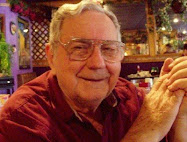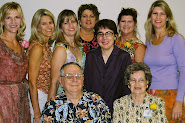 When we moved to 732 James Street in Tomball, there was a birdhouse behind the garage. The previous owner had cages and nests for his pigeons. They were racing pigeons but I guess they also have to be homing pigeons to complete a race. For a race he would take them some distance from home and release them, noting the exact time and their number from a leg band. The pigeons would then fly home, tripping a clock wire as they entered their cage. Their miles traveled divided by their hours would give the MPH flown. Not all birds return. Some are shot by hunters, some are killed by hawks, and some are confused by radio and microwave signals and never find their way home.
When we moved to 732 James Street in Tomball, there was a birdhouse behind the garage. The previous owner had cages and nests for his pigeons. They were racing pigeons but I guess they also have to be homing pigeons to complete a race. For a race he would take them some distance from home and release them, noting the exact time and their number from a leg band. The pigeons would then fly home, tripping a clock wire as they entered their cage. Their miles traveled divided by their hours would give the MPH flown. Not all birds return. Some are shot by hunters, some are killed by hawks, and some are confused by radio and microwave signals and never find their way home.This reminded me of a story about a tomcat that had a similar ability. AF Simpson – only his wife called him Austin, everyone else called him Bull – owned this cat. Bull was employed by Humble, now called Exxon, and was also a builder, building some of the better homes in Tomball. I occasionally did the electrical and air conditioning on these homes. He also served for some years on the city council and was a councilman part of the time that I was mayor of Tomball. That is where I heard this story. Bull worked three days in the Tomball oilfield and two days in the Conroe field. He checked the oil production of the wells and had at both places a small 6 x 8 building called a “dog house.”
The family had a large tomcat and since the children were grown the cat was banished to the garage. Every morning the cat did what all cats do, walk in the wet grass and then jump on the hood of Bull’s pickup, leaving muddy tracks. Bull would throw the cat down, which the cat thought was a game, and the next morning the cat would be waiting to do it again.

One day Bull had an evil thought while wiping the tracks from his truck. The next day he took the cat along to Conroe. He placed some food under the edge of the dog house and while the cat was napping drove away. In his rear mirror he saw the cat running after him but speeding up he soon lost sight of the cat. Five days later when he returned to the Conroe field he looked for the cat but did not see him.
Several months later, returning home from a visit on Sunday afternoon, Bull and his wife saw, sleeping on the hood of his truck, the tomcat. He seemed to hold no grudge against Bull. Stretching when Bull approached, he started purring and licking his hand. Bull stroked him and gently placed him back on the hood of his truck and said, “You rascal, you can live here the rest of your life and sleep on the truck any time you like.” Bull could not explain how the cat made the 30 miles from the oilfield, crossing a 6 lane freeway and the San Jacinto River, crossing FM roads 1488, 2978 and 2920, and finding the house in Tomball.












